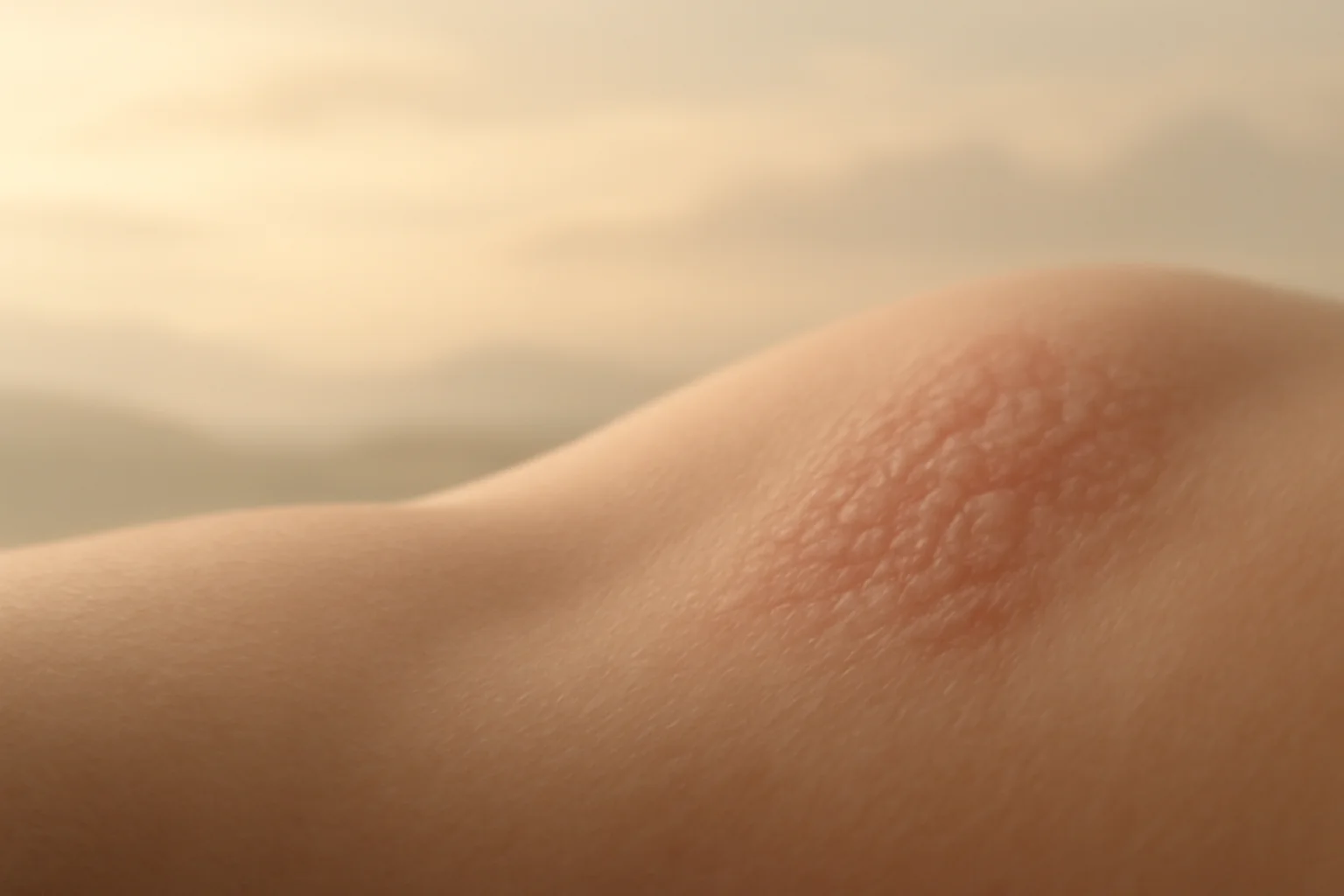
Rash or eczema? Symptoms and treatment options
The skin is our largest organ and serves many functions, including protection, temperature regulation, and sensation. However, many people may experience skin problems, with rashes and eczema being among the most common. Skin rashes can arise from various causes, such as allergic reactions, irritations, or infections, while eczema is a chronic skin condition characterized by inflammation and itching. Skin problems not only cause physical discomfort but can also have psychological effects, such as anxiety and decreased self-esteem.
Rashes and eczema often resemble each other in many cases, but there are important differences worth understanding. Clarifying these differences can help in determining the appropriate treatment and maintaining skin health. The condition of our skin reflects our internal health, making it essential to pay attention to skin problems. Below, we provide a more detailed overview of rashes and eczema to better understand these common skin issues.
Rashes: Symptoms and Causes
Skin rashes can take many forms and can develop for various reasons. These rashes can appear as red spots, blisters, peeling, or swelling. The causes range widely, from simple allergic reactions to more serious skin diseases. Allergic rashes often affect areas of the skin that have come into direct contact with the allergen, such as metals, chemicals, or certain foods.
Another common cause of rashes is irritation, triggered by various external factors, such as soaps, detergents, or materials that come into contact with the skin. Skin sensitivity varies from person to person, so what may be irritating for one individual could be completely harmless for another. Some rashes can also appear as a result of infections, such as viral or bacterial infections, like chickenpox or shingles.
The symptoms of rashes can also vary. Some people experience itching, while others may feel burning or pain. Additionally, the color and appearance of rashes can differ, ranging from red spots to blisters. It is important to pay attention to accompanying symptoms, such as fever, swelling, or pus, as these may indicate the presence of an infection.
If a rash does not go away within a few days or worsens, it is advisable to consult a doctor who can determine the exact cause and appropriate treatment. Home remedies, such as cooling creams or antihistamines, can often help alleviate symptoms, but persistent or severe rashes may require medical intervention.
Eczema: Symptoms and Treatment Options
Eczema, also known as atopic dermatitis, is a chronic skin condition that primarily begins in childhood but can also occur in adults. Symptoms of eczema include dry, red, itchy skin, and peeling. The affected skin area is often inflamed and irritated, and symptoms can appear on various parts of the body, such as the bends of the elbows and knees, the face, or the neck.
The exact cause of the disease is not fully understood, but genetic predisposition, environmental factors, and immune system responses all play a role in its development. Eczema is often associated with other allergic diseases, such as asthma or hay fever, suggesting that an overreaction of the immune system may be involved.
The goal of treatment is to alleviate symptoms and prevent flare-ups of the disease. Doctors typically recommend using moisturizing creams and corticosteroid-based ointments to reduce inflammation. Antihistamines can also help relieve itching. In more severe cases, medical intervention, such as immunosuppressive medications, may be necessary.
Lifestyle changes are also important in managing eczema. Avoiding irritants, maintaining skin hydration, and reducing stress can all contribute to symptom improvement. Additionally, proper skincare and the use of products containing natural ingredients can be beneficial.
Differences Between Rashes and Eczema
While rashes and eczema may exhibit many similarities, it is important to understand the fundamental differences between them. Rashes typically develop suddenly from various causes, and their appearance and accompanying symptoms can vary greatly. In contrast, eczema is a chronic condition that can flare up regularly, with symptoms often being chronic.
The treatment of rashes primarily focuses on identifying the causes, while in the case of eczema, the goal is to manage symptoms and stabilize the skin condition. Rashes often respond quickly to treatments, whereas managing eczema frequently requires a long-term approach.
To establish a diagnosis, a medical examination is necessary, during which the specialist considers the appearance of the rash, accompanying symptoms, and the patient’s medical history. An accurate diagnosis helps in selecting effective treatment, thereby alleviating symptoms and restoring skin health.
It is important to emphasize that prevention plays a key role in the treatment of skin problems. Maintaining proper skincare, avoiding irritants, and leading a healthy lifestyle are essential for preserving skin health.
This article does not constitute medical advice. In case of health issues, everyone should only follow their doctor’s advice.

